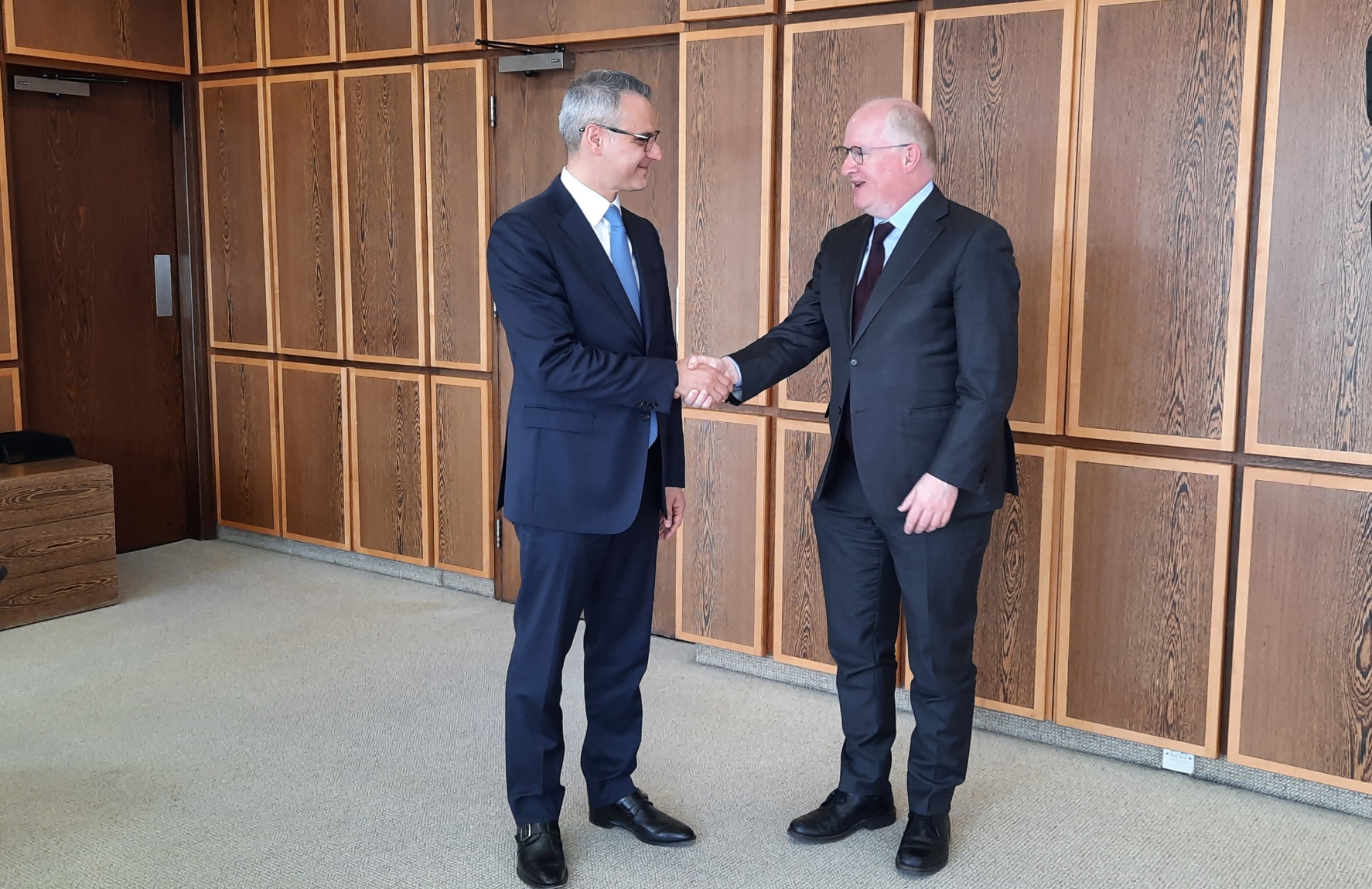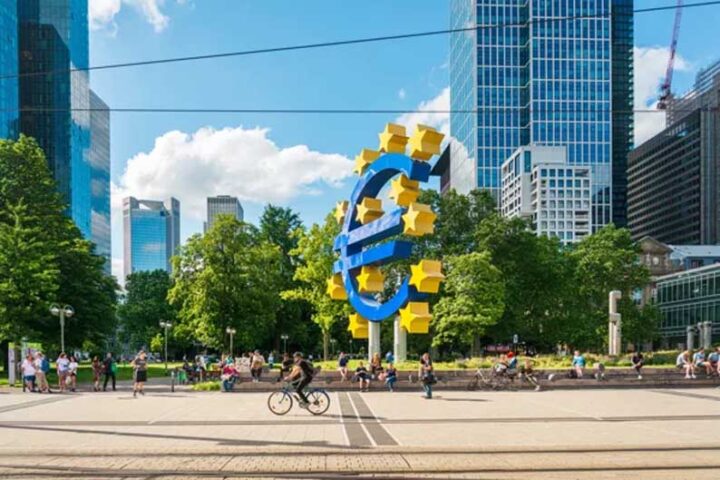The European Central Bank’s next interest rate decision will be based on inflation data, although a hike is likely, Philip Lane, chief economist and member of the ECB’s executive board, told CNA.
Lane, visiting Cyprus, said euro area banks are under strict supervision by the ECB and have high capital and liquidity ratios to face possible challenges emerging from rate hikes.
Following its last interest rate hike, its sixth hike since last July, the ECB, according to Lane, will assess all incoming data on inflation and possible effects from the shocks caused by the failures of regional banks in the US and Credit Suisse.
“I think we were clear in our March meeting, and we made a further increase then.
“A lot has been done, but we have also been clear that our next decision in May will depend on three factors,” Lane said.
The Irish ECB chief economist said decisions would depend on the inflation outlook, the underlying dynamic, not just the overall inflation rate, but their assessment of how quickly inflation will fall and whether inflation will remain too high for too long.
The third factor, he added, is how quickly these interest rate increases restrict the economy and bring down inflation.
“So for these reasons, we have no longer indicated or pre-announced what the expectation is for the next meeting or the upcoming meetings.
“I think we will be looking very carefully at all of these data in the coming weeks.
Lane said the focus should be on understanding every data point that comes in.
“Are we seeing signs that inflation is cooling?
“Are we seeing signs that interest rate increases are reducing credit, for example?
“Are they leading to lower investment, lower consumption, lower pressure on the economy and, therefore, lower inflation?
“We still have quite a long way to go between now and the May meeting, which is about a month away.”
“We will analyse these until the day of the meeting and make a decision then.”
Macro projections
On the overall direction of the ECB, Lane said in March the macro projections were set for the coming months.
“If, by the time of the May meeting, those projections remain on track, then a rate hike will be appropriate.
“We need to be scientific and data-dependent, so in these weeks, we have to see whether the incoming data support that projection from March.
“If they create more inflation concerns, that will move us in one direction; if they create less inflation concerns, that will move us in another direction.
“So I think the formula would be: if the baseline we developed before the banking stress holds up, it will be appropriate to have a further increase in May”.
Many in Cyprus criticised the ECB for consecutive rate hikes irrespective of the effects on the real economy and borrowers’ ability to repay their loans.
Lane said the ECB works “very hard to try to make balanced decisions”.
“But please remember, the reason why we are raising interest rates now is because inflation is high.
“In order to make sure that inflation comes back to a low number, to around our 2% target, we do think it’s necessary, it’s unavoidable, to make these interest rate increases.
“If we did not do this if we kept rates too low…we think inflation would remain too high for too long, and this would not serve anyone.
“It would mean, in fact, a tougher economic situation for a longer period of time.”
According to Lane, raising rates now “is the best route to stability, the best route to making sure the economy is in good shape, and that the cost of living stabilises.”
The European economy is performing relatively well and is expected to grow by around 1% of GDP this year.
“So while we are always on guard, I think that everyone should understand the euro area banking system is in good shape”. (source CNA)









